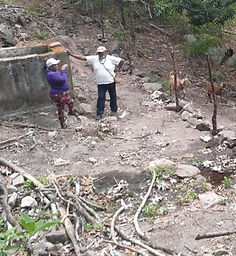
Indigenous Voices
Restoring our
Lands, Environment, and
Protecting Our Culture


This project is located in Tacaratu, Pernambuco, and focuses on land restoration, social, economic, and environmental protection of their natural resources and livelihoods, in accordance with traditional customs, laws, decision-making, and complex organizational structure. Key
activities we are supporting include:
-
Semi-arid and Wetlands biodiversity conservation
and sustainable management; Food security, promoting
agroforestry, and diversity of traditional crops;
-
Activities linking food-health-medicinal plants;
-
Rehabilitating degraded farmlands, and ecosystems;
-
Maintenance of dispersed trees, cover crops, and biomass
production with resilient plant varieties;
-
Water management- capture, and storage (both in soil
and vegetation), contour lines or curves, and terraces;
-
Planting practices to enhance stratification, and
diversification with herbaceous, shrub, and tree species
maximizing the photosynthetic capacity of the plots;
-
Access to new markets and economic opportunities
including AgriVoltaics -------------------------------------------------------------------->
-
Management of cultivated vegetation: active pruning and thinning;
-
Carbon Sequestration in the AgroForestry
-
Developing Women and Youth STEM Skills for Microbiological Soils Restoration









.jpeg)
8000 Hectares of varying terrains, annual wetlands, then semi-arid conditions, plus damages caused by squatters and 'praedial larceny' make conventional agriculture here very difficult. This project will create several new AgroForest sites that will support the recovery and will be implementing- Alley Cropping, Forest Farming, Silvopasture, Riparian Forest Buffers, and Agrivoltaic infrastructures as Windbreaks and sources of free renewable energy for their community to support localized climate resilience and adaptation.